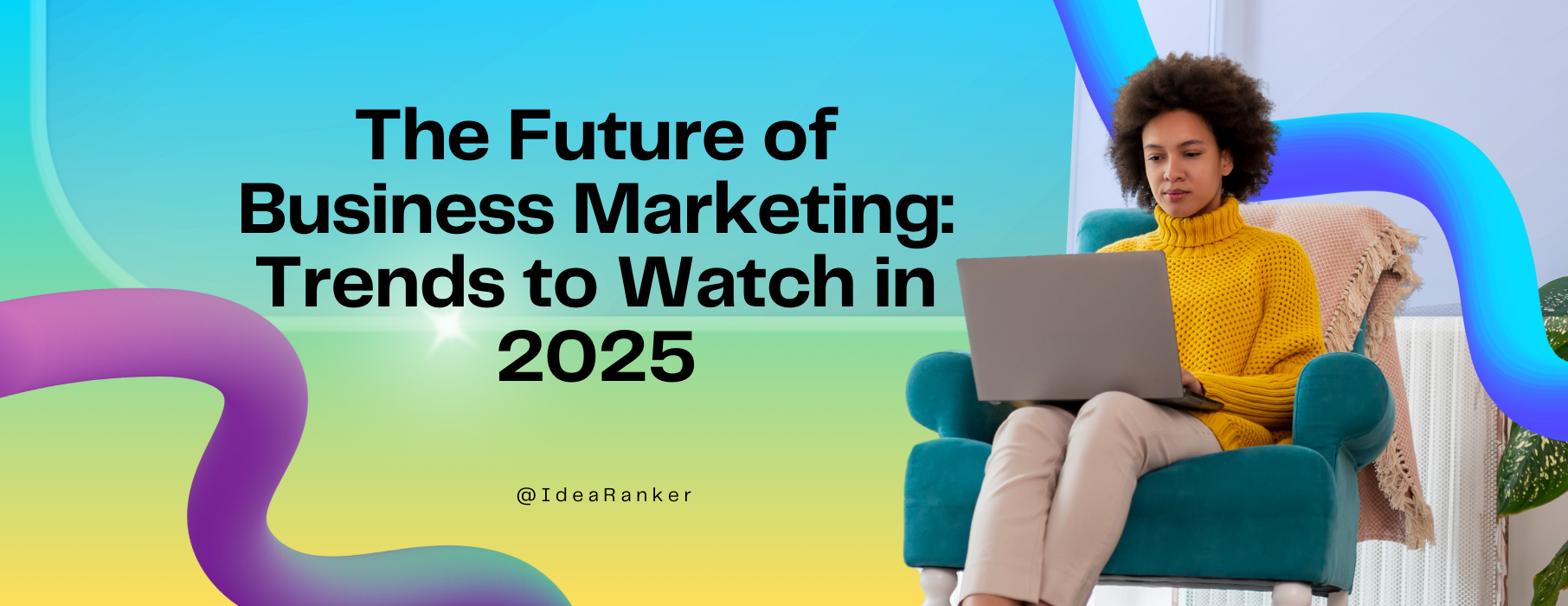As we step into 2025, the marketing landscape is undergoing a seismic transformation, driven by technological advancements, evolving consumer behaviors, and a heightened focus on personalization and sustainability. Businesses that adapt to these changes will thrive, while those that fail to innovate risk falling behind. Here are the key trends shaping the future of business marketing in 2025:
1. AI-Powered Personalization at Scale
Artificial Intelligence (AI) is no longer a futuristic concept—it’s a cornerstone of modern marketing. In 2025, AI will enable hyper-personalized customer experiences by analyzing vast amounts of data to predict consumer behavior and preferences. From AI-driven chatbots offering real-time support to dynamic content recommendations, businesses will leverage AI to deliver tailored messages that resonate with individual customers. For example, Coca-Cola has already integrated AI into its marketing strategies, using chatbots and predictive analytics to enhance customer engagement and campaign effectiveness56.
2. The Rise of Immersive Technologies: AR and VR
Augmented Reality (AR) and Virtual Reality (VR) are transforming how brands interact with consumers. These technologies create immersive experiences, such as virtual try-ons for fashion and beauty products or VR tours for real estate. Brands like IKEA and Sephora have already adopted AR to allow customers to visualize products in their own spaces, enhancing engagement and driving sales611. In 2025, expect AR and VR to become even more integrated into marketing campaigns, offering unique and interactive ways to connect with audiences.
3. Sustainability as a Competitive Edge
Consumers are increasingly prioritizing sustainability, and brands that align with eco-friendly practices will stand out. In 2025, sustainability will move beyond being a buzzword to becoming a core component of marketing strategies. Companies will highlight their commitment to environmental and social causes, using transparent communication to build trust and loyalty. For instance, Kantar’s research shows that sustainability contributes $193 billion to the value of the world’s top 100 brands, emphasizing its importance in driving growth12.
4. Voice Search and Conversational Marketing
With the proliferation of smart speakers and voice-activated devices, voice search is becoming a dominant channel for consumer interactions. By 2025, optimizing for voice search will be essential, requiring brands to focus on long-tail keywords and natural language queries. Conversational marketing tools, such as AI-powered chatbots and voice assistants, will also play a crucial role in providing instant, personalized responses to customer inquiries16.
5. The Creator Economy and Influencer Marketing 2.0
Influencer marketing is evolving, with a shift toward micro and nano-influencers who foster authentic connections with niche audiences. In 2025, brands will increasingly collaborate with creators to co-create products and campaigns, leveraging their engaged communities to drive deeper engagement. The creator economy, valued at $250 billion in 2024, is expected to grow further, making it a powerful tool for brands to build trust and authenticity1112.
6. Data Privacy and Ethical Marketing
As data collection becomes more sophisticated, consumers are demanding greater transparency and control over their personal information. In 2025, ethical marketing practices will be a key differentiator, with brands prioritizing data privacy and compliance with regulations. Zero-party data—information willingly shared by customers—will become essential for building trust and delivering personalized experiences511.
7. Interactive and Gamified Content
Interactive content, such as gamification, quizzes, and AR-powered experiences, will dominate marketing strategies in 2025. These formats not only capture attention but also drive deeper engagement by making the customer experience more immersive and enjoyable. For example, connected packaging, which turns physical products into interactive touchpoints, will gain prominence as a way to enhance brand interactions911.
8. Social Commerce and Shoppable Content
Social media platforms are increasingly becoming shopping hubs, with features like in-app purchasing and live shopping events streamlining the buying journey. In 2025, brands will leverage social commerce to tap into younger, tech-savvy demographics, creating seamless browsing-to-purchase experiences. Platforms like Instagram and TikTok will play a pivotal role in driving sales through shoppable posts and influencer collaborations611.
9. Hyper-Personalization Through Predictive Analytics
Predictive marketing, powered by AI and big data, will enable brands to anticipate customer needs and deliver proactive solutions. By analyzing historical data, businesses can forecast future behaviors and tailor their strategies accordingly. This approach not only enhances customer satisfaction but also drives higher conversion rates and ROI1112.
10. The Blurring of Marketing and Culture
In 2025, marketing will increasingly intersect with culture, as brands align with societal values and trends. Gen Z, in particular, will play a pivotal role in shaping brand narratives, demanding authenticity and purpose-driven campaigns. Brands that successfully integrate cultural relevance into their marketing strategies will build stronger emotional connections with their audiences412.
Conclusion
The future of business marketing in 2025 is dynamic and full of opportunities. By embracing AI, immersive technologies, sustainability, and ethical practices, brands can create meaningful connections with their audiences and stay ahead in a competitive landscape. The key to success lies in staying agile, innovative, and customer-centric, ensuring that marketing strategies evolve alongside changing consumer expectations and technological advancements.
For businesses ready to embrace these trends, 2025 promises to be a year of growth, innovation, and transformative marketing experiences.

Leave your comment